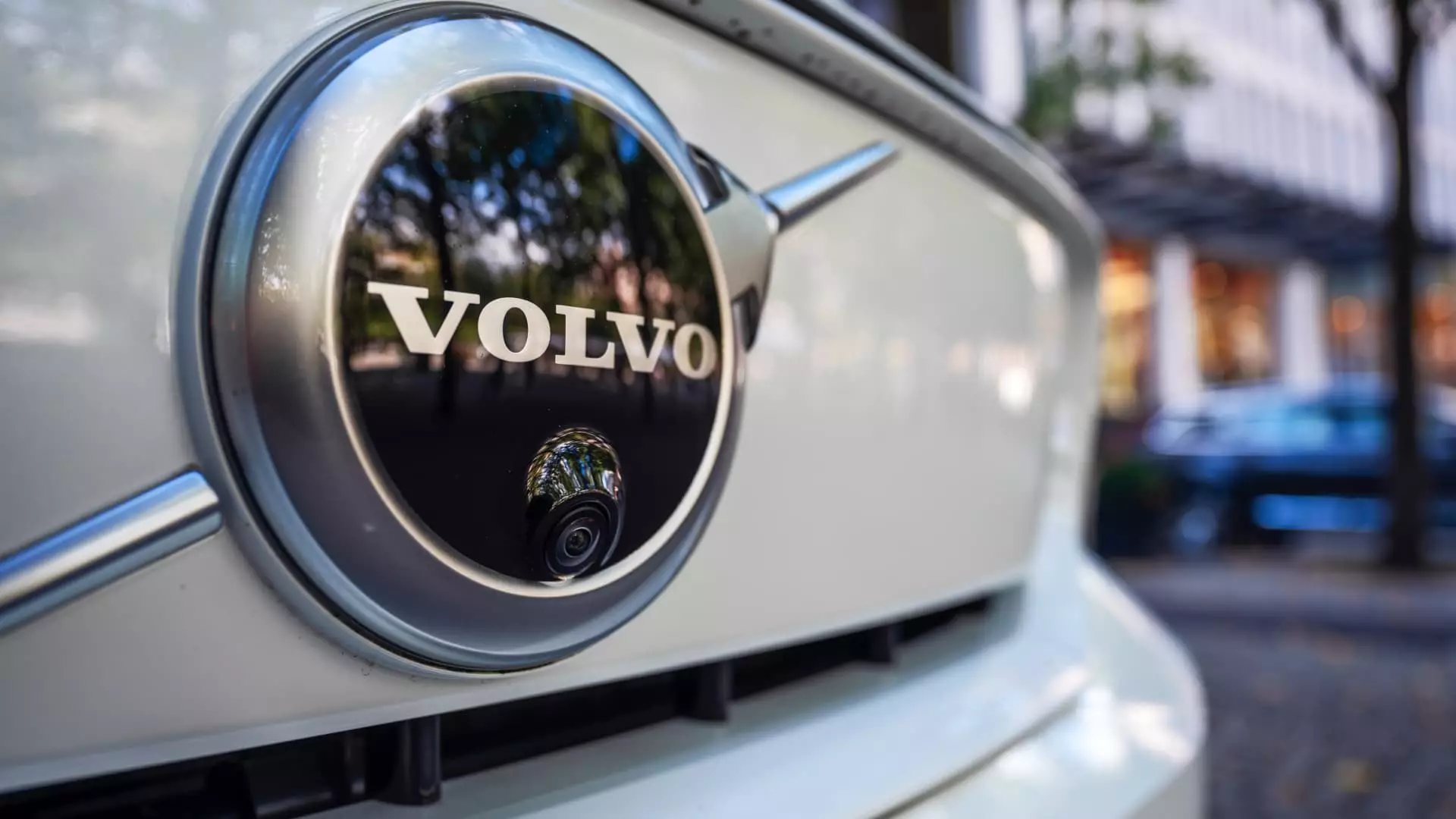The recent announcement from Volvo Cars, a staple of Scandinavian automotive ingenuity, to lay off approximately 3,000 employees is a stark reminder of the precarious balance at play in the global automotive industry. Håkan Samuelsson, the company’s CEO, described these layoffs as “difficult decisions” necessary for building a “stronger and more resilient” future for the company. However, one cannot help but question the ethical implications of these job cuts, especially when they predominantly impact office-based staff in Sweden—an area synonymous with high living costs and social welfare standards.
Volvo, owned by China’s Geely Holding, is clearly feeling the heat imposed by increasing financial pressures, as evidenced by its massive 18 billion Swedish kronor ($1.89 billion) cost-cutting initiative. But do we truly believe that slashing jobs is the only feasible way to navigate these choppy waters? The resiliency of a company should not solely rest upon reducing its workforce but should instead focus on innovation and employee retention, especially when those employees contribute not only to the company’s bottom line but also embody its culture, values, and future aspirations.
Economic Pressures Dictating the Terms
It is evident that Volvo Cars is grappling with broader economic challenges, including tariff pressures and a tumultuous trade climate. Just as the company announced its restructuring initiative, looming uncertainties surrounding U.S. tariffs threatened to create a ripple effect across the automotive landscape. The reactionary nature of Volvo’s decisions appears to mirror the volatile market they find themselves in, rather than a proactive strategy for sustainable growth.
This raises an unsettling question: Why are automakers, particularly those based in progressive nations like Sweden, so quick to make these drastic reductions in human capital specifically during an era where technology is rapidly evolving? Instead of fostering an environment of innovation, the emphasis seems to gravitate towards cutting costs at the expense of inherent human value.
The Dilemma of Electric Transition
Such layoffs come at a time when the automotive sector is undergoing a seismic shift towards electrification. Ironically, Volvo had proudly positioned itself as a vanguard in the electric vehicle (EV) market, announcing aspirations to transition to a fully electric model. Yet, during these layoffs, it appears as though the company has taken a step back, opting for a more “pragmatic and flexible” approach due to fluctuating consumer demands. One has to wonder whether the drive for electric transformation is losing momentum as financial concerns overshadow visionary goals.
While it’s commendable that Volvo recognizes the need for adaptability, it seems contradictory to make large-scale cuts to the workforce while simultaneously pursuing ambitious technological advancements. Wouldn’t a more thoughtful approach involve investing in talent that could aid in navigating future challenges? It feels as though the corporation’s ambitions are being compromised rather than advanced, which is a troubling sign for employees and stakeholders alike.
The Human Element in Corporate Strategy
The disconnect between corporate ambitions and employee experiences is often too stark. Losing around 15% of its office-based workforce, predominantly in Sweden, raises significant ethical questions. What does it say about a company that finds it easier to discard its talent rather than invest and adapt? The reality is that these are not just numbers on a balance sheet; they represent lives, families, and communities that have relied on Volvo as an employer of choice.
As the automotive sector braces itself for a future saturated with electric vehicles, innovation can’t solely stem from technological advancements; it must also come from a committed workforce. Companies like Volvo ought to realize that their greatest asset doesn’t reside in their machinery or their patents; rather, it thrives within the brains and hearts of the people who turn those ideas into reality.
Volvo’s decision to cut jobs in light of economic pressures and performance uncertainties presents a troubling narrative. Are we witnessing a corporate landscape that values profits over people? With winds of change blowing through the automotive world, the temptation to make reactive decisions must be tempered by a commitment to sustainability, both in terms of business practices and human capital.


Leave a Reply